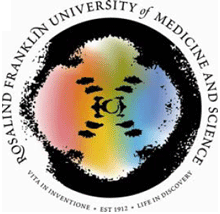Postdoctoral Research Associate , INBRAIN Laboratory
 Rosalind Franklin University of Medicine & Science Rosalind Franklin University of Medicine & Science | |
 United States, Illinois, North Chicago | |
 Jan 18, 2025 Jan 18, 2025 | |
|
The INBRAIN Laboratory is hiring a new postdoctoral researcher (PDR). The Integrative NeuroBehavioral Research and Intervention (INBRAIN) Laboratory is a small state-of-the-art facility within the Center for Lower Extremity Ambulatory Research (CLEAR). We use causal and correlational approaches, advanced analytical techniques, and behavioral/clinical models to better understand and improve brain-body interactions in humans in vivo. Our research is focused on: 1) understanding use- and pathology-dependent plasticity; 2) enhancing physical and cognitive performance; and 3) improving human neuroscience techniques. The laboratory is equipped with navigated transcranial magnetic stimulation (TMS); TMS-compatible EEG; wireless EMG; electrical stimulation; physiological sensing; psychometrics; eye-tracking; high-performance computing; and more. The laboratory is directed by Shawn Flanagan, who will work closely with the PDR as their supervisor and mentor. The PDR will focus on the neurobiological basis of human performance optimization, the effects of non-invasive brain stimulation on function in health and disease, and neurotechnology development and mechanisms of action. The role of the PDR at the INBRAIN Laboratory is an important one. The work will include: data processing and analysis, manuscript and funding submission support, technical troubleshooting, preliminary experiments, and (potentially) software application development. We have worked with many individuals over the years and have a good sense of what works well for us:
The specifics. We're based in North Chicago - you will need to be here or move here. Salary and benefits are commensurate with NIH and RFUMS guidelines - better than what you made as a doctoral student and worse than you'd make in industry. This is a one-year position that may be extended to two or three years depending on our ability to secure funding. You can start immediately. If you are still interested, here's how to apply: Submit your CV, the names and contact information of two references, and a half-page letter stating your research interests and goals. Who We Are Rosalind Franklin University of Medicine and Science (RFU) is a graduate health sciences university committed to serving the population through the interprofessional education of health and biomedical professionals and the discovery of knowledge dedicated to improving wellness. The university embodies the spirit of inquiry and excellence modeled by its namesake Dr. Rosalind Franklin, whose Photo 51 was crucial to solving the structure of DNA. RFU is nationally recognized for its research in areas including neuroscience, brain-related diseases, inherited disorders, proteomics, cancer cell biology and immunology, cardiac resuscitation, and gait and balance. Essential Duties & Responsibilities The primary responsibilities of the Postdoctoral Researcher include:
Conditions of Employment
Required Education & Experience
Required Knowledge, Skills, & Abilities
Preferred Qualifications
Typical Physical Demands & Working Conditions
EOE, Including Disability / Vets | |


